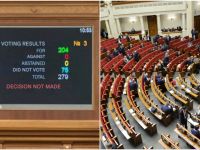Pandemonium struck the press room at the Prime on Bliss cinema Monday, as reporters packed the venue in anticipation of Salma Hayek’s arrival. The multinational actor, along with acclaimed director and animator Roger Allers, and other members of the production, is in town as part of a press junket for the worldwide premiere of an animated adaptation of Kahlil Gibran’s celebrated book, “The Prophet.” Hayek co-produced the film and lends her voice to Kamila – the mother of its young protagonist.
Featuring an eclectic group of Hollywood stars including Liam Neeson, John Krainski, Quvenzhane Wallis and Alfred Molina, its filmmakers hope the production will appeal to audiences around the world.
“For me this is a love letter to my heritage. I have been dreaming of coming to Lebanon,” Hayek said. Due to security concerns that have plagued the region this is Hayek’s first trip.
“This movie could not have been made without the support of the Lebanese ... we got most of our [funding] from the region ... we always knew that we were [going] to come here first. [I’m glad] I have the opportunity to come for the first time, and bring something [along with me].”
Hayek credits her Lebanese grandfather for her initial exposure to the book. “My grandfather used to love this book ... through this book I got to know my grandfather [so] it’s a very personal movie for me.”
Audiences can expect a different take on the renowned poet’s essays. “There could not have been a better way to capture his spirit,” Hayek told The Daily Star, referring to the decision to translate Gibran’s writings into animation. “We break every rule in cinema,” she added. Unlike most animated features, different artists and directors contributed to different segments, which were pieced together to make the film.
The film’s main director, Roger Allers, elaborated on the approach. “The inspiration was to include as many different artists as we could, so that they could bring their own vision to it as well ... It was an invitation to come and play together.”
In a bid to appeal to younger audiences, Gibran’s poems are represented through the imagination of a young mute girl named Almitra. “It was important to make this movie in a way that children and young people [could relate to],” Hayek said.
Lebanese-French composer Gabriel Yared wrote the film’s musical score. He described the process as “difficult, satisfying and creative.”
“It has forced me to go back to my roots,” he added.
There has been no word on whether an Arabic-dubbed version will be released, but the film’s distributor, Mohamed Fathallah, said all possibilities were being considered. As to whether viewers could expect to hear Hayek’s voice in a dubbed version, the actor joked, “My Arabic is not that good – my English is not that good either.” Hayek also hinted in passing that she may have a project in the works with Lebanese director Nadine Labaki.
Some critics expressed concern as to why Lebanon was not referred to in the film. “This movie is bigger than Lebanon, it’s about making a [statement] to the world that we can be one ... In this way we can [send the most beautiful message about] Lebanon and the Arab world,” Hayek explained.
Whether this message will be heard, and what its impact will be, only time will tell.
Jimmy Dabbagh








